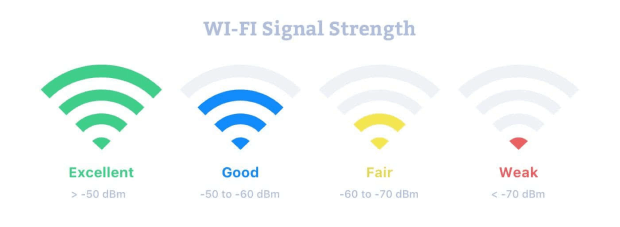
Back in 2006, Kerala came head-to-head with an explosive state of affairs. Ironically, in a nation dominated by Communist politicians, farming turned into export-oriented cash crops, including rubber and pepper, prices of which had plunged in the worldwide marketplace. It led to a spate of farmer suicides, who had defaulted on loans. The hue and cry from rural Kerala reached the countrywide capital, in which Booker-winning writer Arundhati Roy marched with girls whose farmer husbands had killed themselves.
Into this maelstrom walked a brand new Communist government led by leader minister V. S. Achuthanandan, a seasoned employee activist, and tactful baby-kisser. Achuthanandan drafted Delhi-based Prabhat Patnaik as his planning board, a role that made the left-wing economist the state’s de facto chief economic adviser.
Soon after accomplishing Kerala, Patnaik recounted, “We had to do something.” During a talk, his spouse and cited economist Utsa Patnaik pointed to a pre-independence technology model that supplied a full-size alleviation for farmers in misery, with an almost folksy attraction to it: the Sir Chhotu Ram Commission in Punjab, whose members traveled from village to village, taking petitions from debt-ridden farmers, granting them comfort.
Patnaik and others studied the initiative during the British period. They grew to become it into a new model, which caused the formation of the Kerala State Farmers’ Debt Relief Commission. The regulation came into force in January 2007.
In retrospect, the Kerala experiment provides a promising opportunity to large-ticket farm mortgage waivers, which have been on the upward thrust (eight states have promised to waive a total of ₹1.9 trillion of crop loans considering that April ultimate yr, burning a hole in state coffers), although fraught with delays and the exclusion of deserving farmers. Under the Kerala initiative, a seven-member group of farmers, criminal experts, farm economists, political appointees, and others goes from village to village, speaks to farmers, monitors their loan portfolios, and comes to a decision on the quantum of relief.
By the time Patnaik started, approximately 1,500 cultivators had devoted suicide, consistent with farmer unions, although reputable numbers had been lower. The scale of the tragedy changed, into not as massive as in Vidarbha in Maharashtra, but the numbers are still alarming.
Immediately after the Debt Relief Commission was set up, the 25-member body of workers at the headquarters in Thiruvananthapuram was besieged with petitions from farmers searching for succor. Within two years, farmer suicides had fallen sharply. Now, eleven years on, the trouble has almost disappeared.
Continuous engagement
Professionals say part of the credit score is going to the fee, even though different essential applications consisting including the United Progressive Alliance’s mega farm loan waiver in 2008 at a countrywide level and kingdom-level measures, additionally performed an important role.
The remedy furnished utilizing the commission isn’t unconditional: the mortgage needs to be from the cooperative quarter, which gives the bulk of farm loans; the applicant must be a small or marginal farmer, who owns or has taken on hire a crop place of much less than 5 acres; and the applicant’s annual earnings should now not be over ₹2 lakh. The fee sits for numerous days in a village every month, and this year, on my own,354 farmers have benefited from the disbursement of more than ₹11 crores.
It is a confined association compared to what exceedingly larger states may want and lower than expectations in Kerala. The remedy is as much as ₹1 lakh for loans better than ₹50,000, and, thus far, just about ₹213 crores out of the ₹355 crores allotted over the years has been spent.
Commission member and farm expert S. Janardhanan said that because the intensity of the farm crisis was given subdued in Kerala, the sports of the fee also bogged down. “However, it is nevertheless a model worth emulating across u. S. A ..”
Earlier this year, a crew from Rajasthan visited Kerala and studied the version before saying a waiver, he stated.
“Instead of bulk farm mortgage waivers, this is a continuous engagement. Around the 12 months a person is speaking to farmers, seeking to comprehend what they may be going through and the way the country can help,” Janardhan said. “The meetings are informal. We move past our mandate and frequently endorse farmers, despite the debt being due to a daughter’s training or clinical expenses. Many do not know the blessings they can avail, for example, in cases of crop loss because of natural calamity. We make preparations for them (in one’s instances).”
ALSO, READ indicates an opportunity for farm loan waivers
In practice, K.R. Chandramohan, who was the chairman of an urban cooperative financial institution for about 30 years in the Kollam district, said the debt comfort commission also acts like a banker’s debt remedy fee. “There are chronic defaulters in every cooperative financial institution...Negotiations among farmers and creditors, with the country as the mediator, assist banks in remedying NPA (non-performing asset) problems.”
ALSO, READ as opposed to realities
This is a version that would be emulated across the United States, stated Patnaik. “The whole point was to take a look at the farmer. Agriculture is the livelihood of a peasant. If you do not make sufficient, you cannot take your infant to the hospital.”
Although it works at a snail’s pace, debt comfort commission is beneficial to most farmers, stated P. V. Rajappan, a rice grower from Kerala’s Palakkad district. Rajappan was affected by a harsh drought in 2008, which led to a default of a ₹50,000 loan from a cooperative bank.
ALSO, READ: find no solace in the farm mortgage waiver
“The mortgage was taken by way of three of us, all farmers. But with the drought, we couldn’t pay off. Eventually, along with the dues, we owed the bank ₹80,000.” That was while he heard of the commission. “We submitted a plea before it in a sitting and got the financial institution to halt default complaints… Just two weeks ago, we were given a letter announcing all our dues were waived,” he said.












